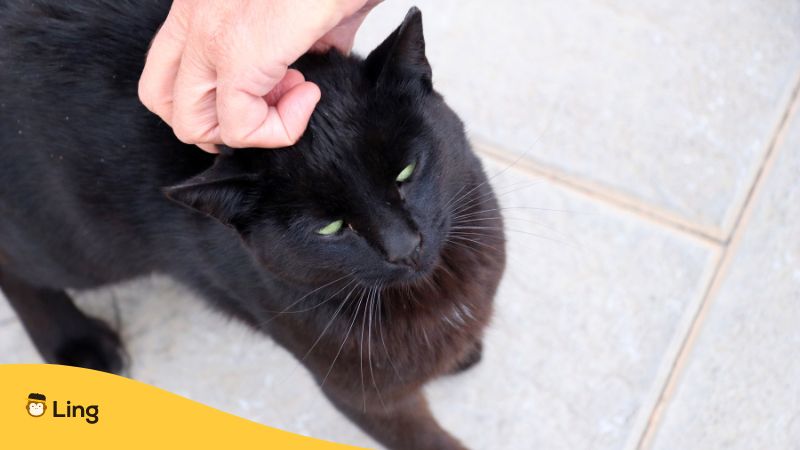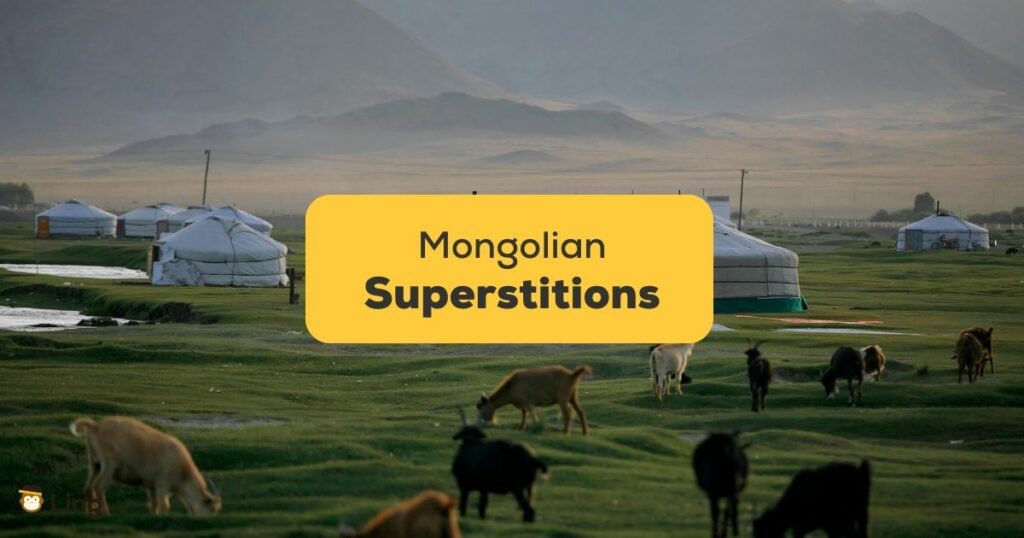Hello, knowledge seekers! Buckle up for an exciting journey today as we dive headfirst into fascinating, and perhaps a little peculiar, realm of Mongolian superstitions. Yes, you read right. We’re embarking on a whimsical, fact-filled expedition deep into the heart of Mongolia. Forget “knock on wood” or “black cat in your path”, brace yourselves for a whole new cultural kaleidoscope of belief systems.
What Is “Superstition” In Mongolian?
In this mystic language, a “superstition” is translated as “Уран зохиолын итгэл” (Uran zohiolyin itgel). Let’s break it down: ‘Uran zohiolyin’ means ‘folk belief,’ and ‘itgel’ translates to ‘faith.’ All together, we have ‘faith in folk beliefs’, which is pretty poetic, don’t you think?
But let’s put language aside for a moment and delve into the juicy part: the rich superstition culture in Mongolia.
In Mongolia, superstitions are more than just fireside folklore or amusing anecdotes. They’re deeply entwined in the country’s cultural fabric, shaping practices, traditions, and daily routines. A framework for understanding the mystic or unexplained, these superstitions provide a sense of security and guidance, making the unknown a bit less daunting.
According to the locals, the lifeblood of Mongolian superstitions is nature. Living in harmony with the Earth, its spirits, and its forces is a core theme. From respecting the sanctity of water bodies (no washing clothes in the river, thank you!) to not pointing at rainbows (you wouldn’t want to offend the celestial deities), these superstitions reflect reverence for the environment.

Words Related To Mongolian Superstitions
Are you ready for a linguistic escapade unlike any other? Grab your dictionary, and let’s dive into the world of Mongolian superstitions by exploring some of the words and phrases that define this unique, mesmerizing culture. Remember ─ the power of knowledge is mightier than any superstition, and these words just might come in handy on your next Mongolian adventure.
Шуудан (Shuudan) – Taboo
Let’s kick things off with a term that’ll get your curiosity piqued. ‘Shuudan’ refers to a taboo or a behavior that is traditionally disallowed by Mongolian culture and customs. Tango around taboos, and you risk offending the local spirits, or even worse ─ the people themselves.
Улаан намаг (Ulaan Namag) – Red Book
No, we’re not talking about a scarlet-colored diary, my dear readers! ‘Ulaan Namag’ is a book of daily horoscope forecasts, based on Mongolian astrology. Just a fair warning – avoid making major decisions without consulting the Red Book at your peril!
Дар (Dar) – Respect
Some might say that the cornerstone of Mongolian superstitions is the idea of ‘Dar’ – respect for the environment, the spirits, and fellow humans. From hanging prayer flags on sacred trees to not stepping over someone’s outstretched legs, the fundamental principle of ‘Dar’ underpins many Mongolian superstitions.
Зан (Zan) – Ritual
Ready for a rousing display of Mongolian cultural heritage? A ‘Zan’ is a ritual or ceremony, often involving prayers, offerings, and symbolic actions. Some ‘Zan’ are associated with traditional Mongolian shamanistic (Тэнгэризм – Tengerism) practices, while others are more related to Buddhism. Regardless, they’re undoubtedly awe-inspiring.
Тэнгэр (Tenger) – Sky/Skies
Let’s soar to great heights with ‘Тэнгэр’ (Tenger), which means ‘sky’ or ‘skies.’ The ‘Tenger’ is an integral part of Mongolian superstitions, as it’s believed to be the home of powerful celestial deities who bless or curse the land below. So next time you gaze at the boundless Mongolian skies, remember that there’s a whole world of stories hidden within their tranquil expanses.

Common Mongolian Superstitions
Fellow knowledge-seekers, it’s time to take the plunge into the intriguing world of Mongolian superstitions. Hold on tight as we explore some of the most common and captivating beliefs that form the very backbone of this magical land. Grab your curiosity cape, and let’s take flight!
Put the Scissors Down, And No One Gets Hurt
We’ve all had haircuts—chop, chop, and voilà, a new look! But in Mongolia, there’s more at play than just a snip. It’s believed that negative energy lingers on the tips of your hair, which can then be absorbed by others who come into contact with it. So, next time you’re in Mongolia, be mindful of where you trim those locks, or you might be sending bad vibes someone’s way without even realizing it.
Watch Out For That Dog…Or Goat Skull
You might think you’ve stumbled into a spooky movie when you come across animal skulls outside Mongolian families’ homes. But fear not! These skulls are believed to ward off evil spirits and provide protection to the household. So, don’t be alarmed if you spot one—it’s all part of the charm.
Empty Bottles Beware!
When in Mongolia, discard that empty water bottle in the trash with care! Tossing an empty bottle on the ground is considered a big faux pas. Why, you ask? Well, it’s said that leaving emptiness behind will bring bad luck to the person who encounters it. So, let’s be good global citizens and keep our surroundings (and luck) spick and span!
Also, the idea of throwing anything at another person is considered rude. According to the locals, one is expected to throw things at animals but never to people.
Sweet Moon-shaped Brows And Serpent Snails
If someone admires your full, rounded eyebrows in Mongolia, take it as a high compliment! Mongolian superstitions associate shapely, crescent-moon eyebrows with good fortune, while eyebrows resembling snake-snails (yep, you read that right!), with sharp, pointy ends, portend bad luck. Talk about a hairy situation!
Sleeping Beauty Mongolian Style
When you’re ready to slumber after a day of exploring the vast Mongolian steppes, make sure to follow this essential bedtime rule: always sleep with your feet pointing towards the door. Facing the other direction is considered disrespectful to the gods and might even invite a nightmare or two. We can’t have that, can we?
Don’t Stop Learning With Ling!
Meet Ling, the best language-learning resource for Mongolian! It’s learning wrapped in fun – like gaming with a language twist. Thanks to its collection of bite-sized lessons, quizzes that feel like quests, and native audio recordings, mastering your target language will definitely be a breeze.
Ready to level up your language game? Ling got you covered! Download it now on the Play Store or App Store!



































































